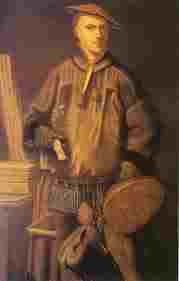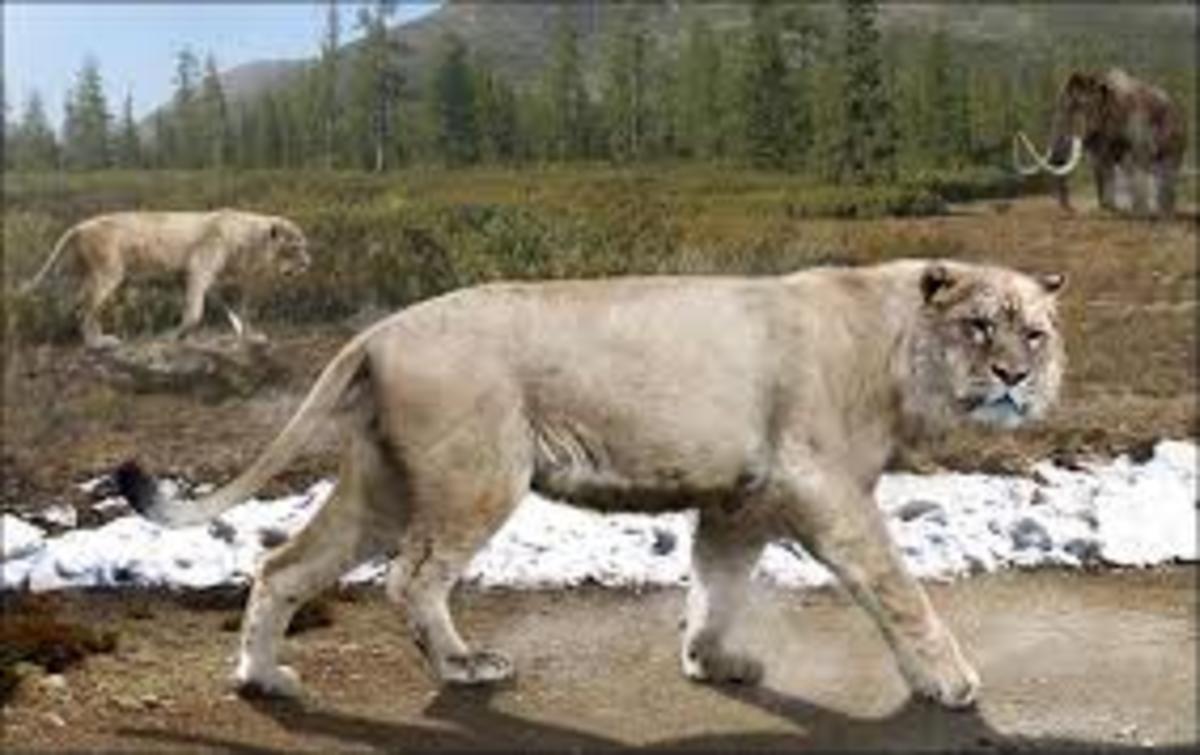Taxonomy, Pt. 2: The Great Carl Linnaeus.
Linnaeus: Honored by his king.
Click thumbnail to view full-size

Linnaeus was the Prince of Botanists
Taxonomy, Part 2: The Great Carl Linnaeus.
When we think of nature, the world of creatures and plants that fill our world, we realise that there has to be a way of classifying them if we ever want to remember from one day to the next what they are and what they do - how do they fit into the scheme of things on the planet and what was their history.
There are many types of Taxonomy for many human endeavours, such as scientific taxonomy, military, economic, safety, etc., etc.
No mystery to most readers, the most important by far, to try and organize the world of living organisms - or their fossils - is called Biological, or Linnaean, Taxonomy.
Delving into the history of taxonomy, its creators and how it came about might well be a life-long study in itself. In constant flux and mired in great, world-wide debates among the scientific communities, the chapters that make up the vast collection of knowledge called Biological Taxonomy, are always in review, especially with the application of Molecular Phylogenetics adding DNA to the mix over the last 30 years.
But this great classification of the plant and animal kingdoms’ - with many additions and corrections - have remained substantially the same since the time of a genius, Carl Linnaeus - 1707 to 1778. Linnaeus was - and is still - considered one of the greatest men of science the world has ever known. In fact, if he had not had to make a living to support his family as a medical doctor in the early days, who can tell to what length his studies of biology, the amount of specimens in his huge collections, and his system of classification, would have amounted to?
In any event, he published four or five magisterial treatments of his subject, still venerated today, earning him the title of Prince of Botanists, among other accolades. Some hundred years before Darwin, he ran into the scientific and religious establishment of the day with his classification of man among the primates. Wisely, he manoeuvred around the subject avoiding, perhaps, a Scopes Monkey Trial well before Darwin had to face the music. Of the many contretemps that can be lain at religion's door, its suppression of knowledge containing anything that went against priestly traditional teaching; its active condemnation, punishment and shunning of all that went against its “teachings,” must earn the practitioners enduring shame.
The main body of Linnaeus' classification system has held good for more than 200 years, with chapters added and subtracted as science and technology progressed. His grouping of plants, for example, by the male and female parts - the stamens, male and the pistils, female, has been much superseded by later work, particularly by John Ray who considered all the parts of the plant in order to classify them.
A lot has been said about Linnaeus' apparent religious beliefs, tempered by his leanings towards becoming an evolutionist. He had a large family to support and the respect of all the citizens to whom he came in contact and who were inspired by his work. He did become quite well-off, with several substantial properties. Linnaeus may well have trodden a narrow path between accepting the obvious signs that his world was driven by evolution, and having to repeat that he still thought a creator was responsible in the beginning, and all began upon Adam's descent from Paradise. He kept his private thoughts on the matter very close to his chest, (if you'll excuse the rather mixed metaphor), and was deliberately (I believe) vague about many things. Yet he was the first to "put man among the monkeys" when he said they were indistinguishable as a genera, causing a furious debate amongst his peers.
Linnaeus was admired by and constantly referred-to by both the Darwins, (Erasmus and Charles - his grandson), and his publications coloured all their own work; in fact, the cachet he received of Prince of Botanists rather damns him by faint praise: King of Botanists, or Emperor would be more exact.
After his travels to Europe and Lapland, etc., the great man confined his later work to Sweden, so pleasing the king, Adolf Frederick, that he honoured him by conferring nobility on him, entitling Linnaeus to take on an honoured title - he chose Linnaeus Von Lynne - and to bear a coat of arms. (Britain’s thieving politicians, eat your hearts out!). This heraldry includes many depictions of his life's work, such as flowers and an egg, and the sonorous line, "We extend our fame by our deeds;" perhaps a good maxim for hubbers, as the days go by without a submission!
Linnaeus declined in later life and finally had a series of strokes, the third of which finally stilled this great mind and energetic body. Botanist, Zoologist, Medical Doctor, Writer and Philosopher: Carl Linnaeus passed away on January 10, 1778 at the family estate. He had expressed a wish to be buried there, but the public and the royal family, securing agreement from the family, opted to have him interred in Uppsala Cathedral.
Linnaeus left a huge collection from his work, this included 14,000 plants, 3,198 insects and 1564 shells; along with 3,000 letters and 1600 books. His wife, Sara, after refusing better offers, changed her mind and subsequently sold the collection to a John Smith.
Linnaeus' major publications were: "Systema Naturae," "Species Plantarum," "Genera Plantarum," and "Philosophia Botanica." The originals, of course, and even early copies are worth a fortune is you happen on one in a boot sale!! (flea market to the cousins).





